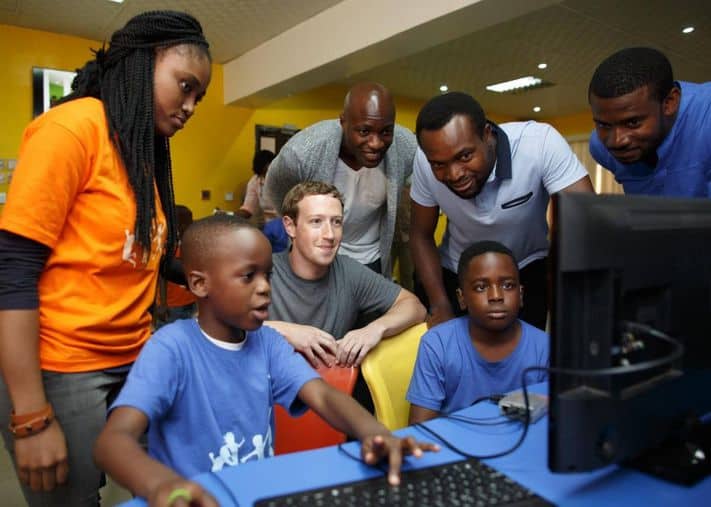

The fading facades of century-old buildings in a neighborhood of the Nigerian megacity of Lagos house a vibrant technology cluster that’s caught the eye of Facebook Inc. and Alphabet Inc.’s Google.
The Yaba area, home to the Yaba College of Technology and the University of Lagos, is an emerging technology ecosystem — from fewer than 10 startups in 2013 to more than 60 today, including businesses like booking site Hotels.ng. It also hosts digital labs for Nigeria’s oldest bank, First Bank of Nigeria Ltd., and Stanbic IBTC, the local subsidiary of Africa’s largest lender.
“Lagos, like other major cities such as Nairobi and Accra, is at the height of this exciting expansion in innovation across tech, with Yaba quickly finding itself at the center,” said Chimdindu Aneke, program manager of platform partnerships for sub-Saharan Africa at Facebook, which last year launched a hub space in the neighborhood.
Fola Olatunji-David, the head of startup success services for Google Launchpad Africa that started a development boot camp in Yaba in 2017, said Lagos has a “buoyant, characteristic ‘anything-can-happen’ feel,” fed by budding entrepreneurs seeking to address socioeconomic gaps with Google technology.
Yaba’s path into the spotlight started from the bottom up, bolstered by a grassroots movement that lobbied for support from a government not immediately sold on economic benefits of technology. The group’s first success came in 2013 when, anchored by the Co-Creation Hub, which now manages a space for Facebook and partners with Google to run programs, it convinced the authorities to waive taxes for a company, MainOne, that agreed to lay Yaba’s internet infrastructure.
“That was how Yaba was conceived: to demonstrate the power of people being connected and the socio-economic impact that would have,” said MainOne’s regional executive for West Africa, Kazeem Oladepo.
In April last year, Lagos hired the global consultancy company Accenture, and in July Vice President Yemi Osinbajo took local start-ups to Silicon Valley as the state announced it was launching a project to develop the Yaba cluster. By August, the government purchased 30,000 square meters of land around Yaba to expand the area that it hopes will create more than 250,000 jobs.
It’s only been up from there, as the government realized the internet technology ecosystem offered a way to boost an oil-reliant economy slowly recovering from crude’s slide to a 12-year low in January 2016.
National teams from Africa advance their World Cup qualification pursuit as they take part in Matchday 5 of the qualifiers.…
Creative Africa Nexus (CANEX) is running the Book Factory Prize for Publishing in Africa again to award $28,000 to African…
Canadian companies have expanded their presence as major African mining stakeholders and invested more than $37 billion. Africa holds the…
The South African government wants people to plant one million trees across the nation within a single day on September…
The government's statistics regulator showed that South African inflation stayed at 3.2% during February and rose below the projected 3.3%.…
Keywords: Cape Town, African Energy Chamber, Africa, The 2025 African Energy Week (AEW) will host the top energy leaders from…
This website uses cookies.